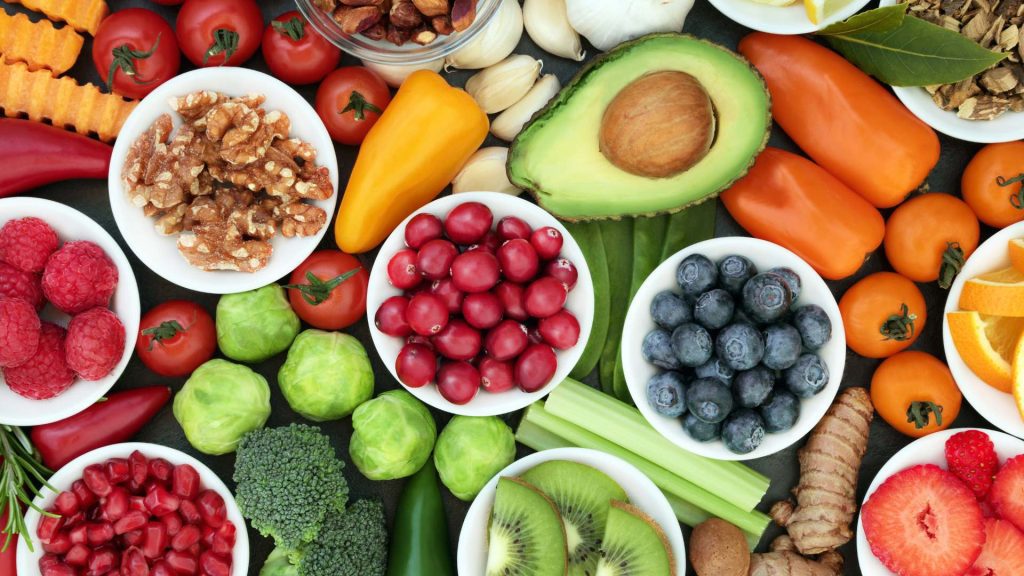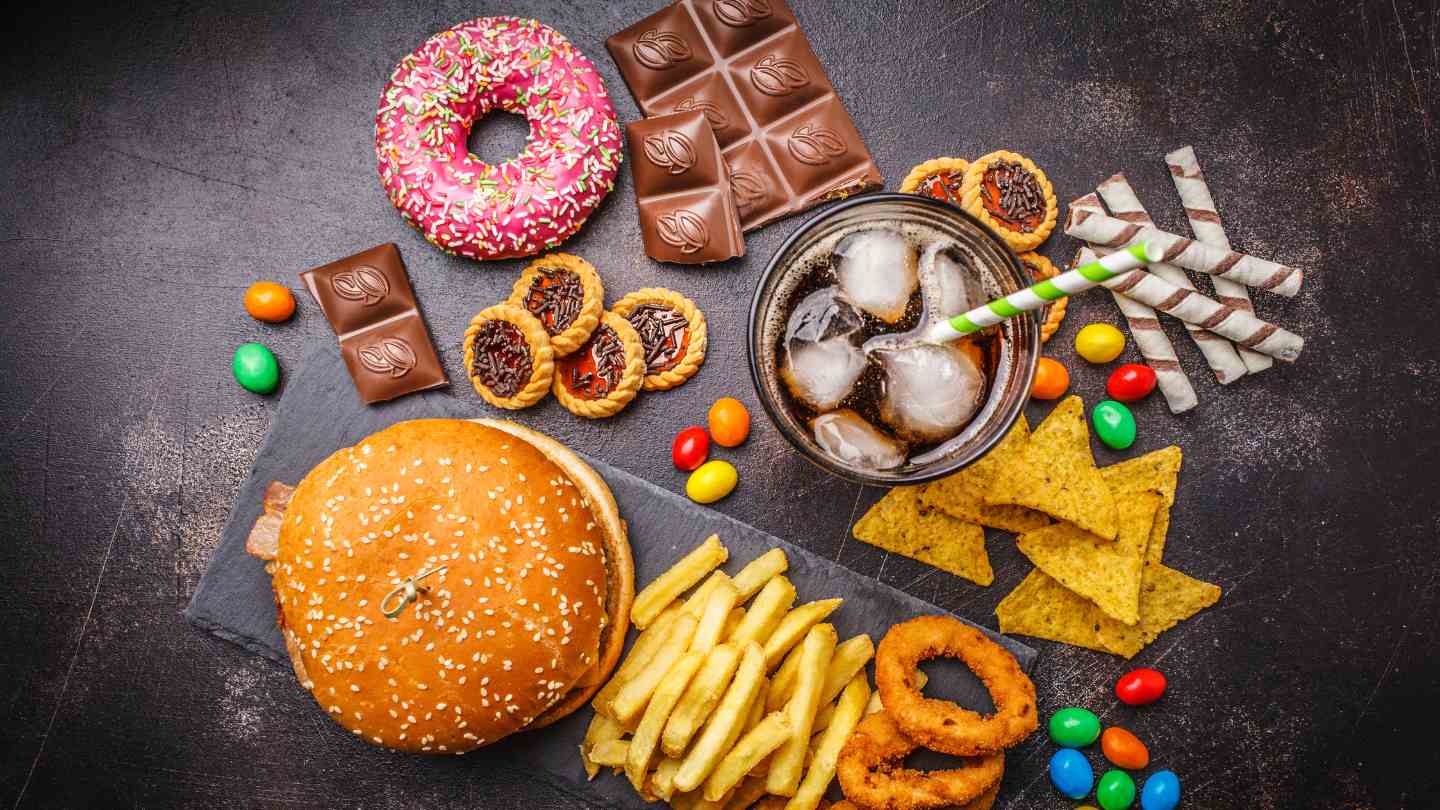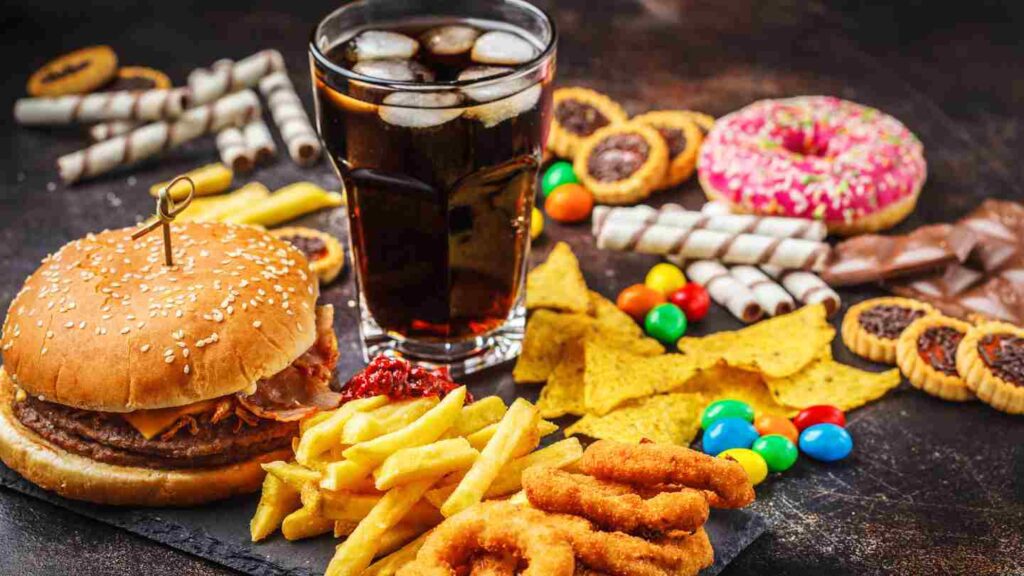There has been a lot of talk in the media lately about ultra-processed foods. In this blog post, we discuss what ultra-processed food is and how it can effect health.
In order to discuss ultra-processed foods, we must first mention what unprocessed food is. Eating an unprocessed diet means choosing mainly foods that recognisably come from animals and/or plants with minimal or no processing.
What is Unprocessed Food?
Unprocessed foods include vegetables, fruits, meats, fish, shellfish, nuts, seeds, eggs, whole grains, and full-fat dairy products. You will note that single, unprocessed foods have no ingredients list – an apple, for example, or a piece of steak – has no list of ingredients because it’s just a single whole food. There are no ingredients used to make an apple – it’s just an apple!
Of course, many wholesome food items we buy from supermarkets etc are not completely ‘whole’ as such, but have been made using age-old processes that our grandmothers would recognise – peeling, cutting, churning, cooking, smoking, culturing, drying, fermenting, etc; traditionally this was done to make food more edible or stop it going bad, and to improve storage, convenience, taste, health benefits and variety. Traditional foods such as butter, cheese, pickled vegetables, sourdough bread, for instance, are minimally processed and contain only a short list of ingredients familiar to a home cook, such as salt, pepper, sugar, yeast, herbs and spices.

What is Ultra-Processed Food?
Ultra-Processed foods (UPFs), are certain food products we are all familiar with are now seen as belonging to a distinct category of highly processed items made using ingredients and methods that are only available to industrial manufacturers. The NOVA classification of foods (refs below), recently developed by nutrition researchers at Sao Paulo University, places food products in one of four categories:
- Unprocessed and minimally processed foods, e.g. fresh, dry or frozen fruits, vegetables, legumes, milk, eggs, meat, fish and whole grains
- Processed culinary ingredients, e.g. salt, sugar, honey, vegetable oils and butter.
- Processed foods, e.g. canned vegetables with added salt or sugar, fruits in syrup, cheeses and home-made bread.
- Ultra-processed foods, e.g. soft drinks, sweet or savoury packaged snacks, ice creams, candies and mass-produced breads and pastries.
UPFs (category 4) are the food products in question here. They have been created and extensively transformed by industrial processes, using substances extracted from foods and/or synthetic additives. Other examples include: frozen & take-away meals, hot dogs, crisps, breakfast cereals, low-calorie spreads, flavoured yogurts, vegan ‘cheese’.

Ultra-Processed Foods and Health Effects
UPFs are designed to be convenient, appealing and profitable, but may have negative effects on health and the environment. USA and UK populations reportedly consume more than 50% of dietary energy from UPFs, while in European countries this figure ranges from 10-50%. Microsoft PowerPoint – 5.2_ SAFE – EFSA emerging risks presentation – ultra-processed food (3).pptx (europa.eu)
Studies have linked higher consumption of UPFs to increases in obesity, high blood pressure, Type 2 diabetes, dementia, weight gain, depression and cancer, among others.
For example, a recent landmark study directly compared the effects of an ultra-processed diet against an unprocessed diet on calorie intake and weight gain. It found that people who ate UPFs consumed significantly more calories and gained more weight than those who ate unprocessed foods.
Learn more about how our diet and lifestyle can impact on our health by joining our Nutrition & Health Coaching course, beginning September 14th 2023.











